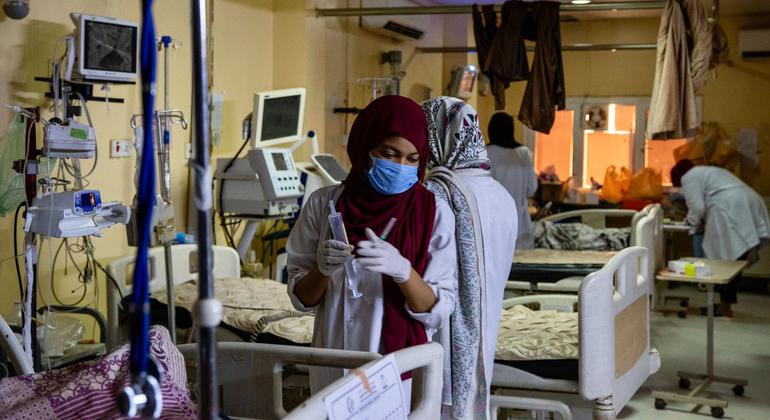ICRC Warns of Health System Collapse and Rising Sexual Violence in Sudan

Daniel O'Malley, the head of the International Committee of the Red Cross (ICRC) mission in Sudan, has warned that the country's health system has effectively collapsed, with estimates indicating that 70 to 80 percent of health facilities are non-operational. This situation leaves two out of three civilians without access to medical care.
During a press conference in Port Sudan on Wednesday, O'Malley noted that "some injured individuals have been compelled to seek medical treatment in neighboring countries," highlighting that health facilities in conflict zones have been damaged, jeopardizing lives.
The crisis is worsening, making it particularly difficult for women, children, and the elderly to access healthcare. O'Malley also pointed out that "looting of health facilities, threats to staff and patients, and physical violence against them are common occurrences."
This grim assessment aligns with previous statements from Sudan's Health Minister, Haitham Mohammed, who reported that 80 percent of hospitals and health facilities are out of service, either due to their location in conflict zones or because they have been partially or completely damaged.
In this context, O'Malley urged both the army and the Rapid Support Forces to adhere to humanitarian law. He emphasized the "urgent need for humanitarian assistance to reach those in need during hostilities and the importance of ensuring safe operations for humanitarian organizations to provide aid and protection to those affected by conflict."
In a related report marking two years of conflict, widespread sexual violence in Sudan was documented. The report indicated that "sexual violence has led to forced displacement," with some individuals fleeing immediately due to such violence, while others were targeted while trying to reach safety.
The report painted a bleak picture of the situation, pointing to "a malicious pattern that strips victims of their humanity." Many survivors suffer from a lack of life-saving medical services and psychosocial support, making it extremely difficult to assess the true extent of the problem.
According to the report, "more than 70 survivors, particularly pregnant women, hesitated to seek early medical assistance due to fear of stigma." As their pregnancies progressed, they often found themselves without support and sometimes far from their families. Despite family members witnessing the traumatic events, they faced significant challenges in processing what had occurred.
The report also noted that the ICRC has received 7,700 inquiries about missing persons by the end of December, marking a 66 percent increase compared to the total number of cases in 2023. To alleviate suffering, over 45,000 phone calls between family members within Sudan have been facilitated.
The ICRC concluded by affirming that "compliance with humanitarian law is essential, and space must be created to uphold minimum standards for humanitarian aid, separate from political agendas." It stressed that "the protection of civilians and unhindered access to humanitarian assistance are non-negotiable and are legal obligations arising from humanitarian law."
